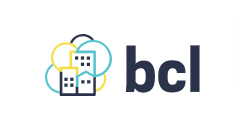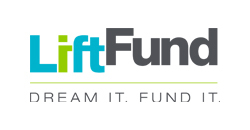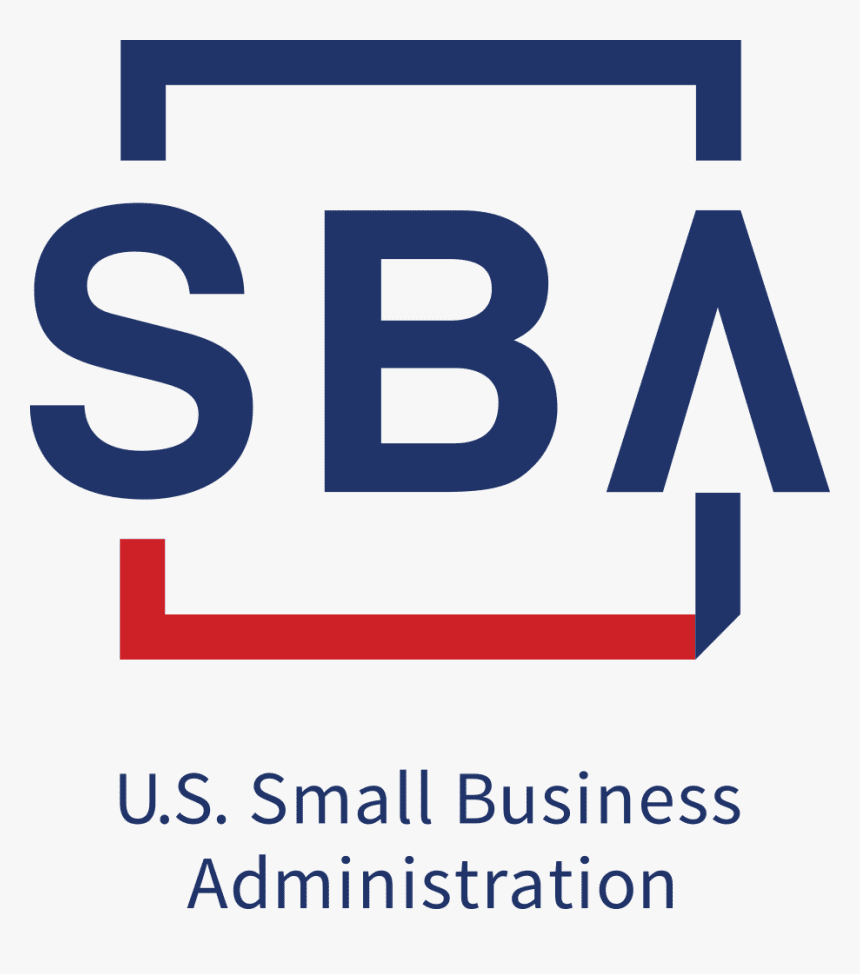Overall, business loan requirements tend to be fairly similar regardless of where you are located. Most lenders want to see that your business has a decent credit score, a stable business history and sufficient revenue to pay back the loan. You will likely need to pledge collateral to help reduce lender risk when applying for business loans for new businesses.
Best Small Business Loans in Texas
Small business loans in Texas can help local companies access funds for inventory, payroll, equipment, commercial real estate and more. Here is how to get a business loan in Texas.
Best small business loans in Texas
| Lender | Best for… | Max. loan amount | Term length | Min. interest rate | Time in business |
|---|---|---|---|---|---|
 | Startups | $50,000 | Not disclosed | Not disclosed | Less than 24 months |
 | Fast funding | $25,000 | Up to 84 months | 7.00% to 15.00% | Less than 24 months |
 | Nonprofit financing | $5,000,000 | Up to 60 months | Prime + 2% | 24 months |
 | Microloans | $35,000 | 12 to 72 months | Not disclosed | 3 months |
 | Minority entrepreneurs | $500,000 | 5 to 120 months | 9.90% | Not disclosed |
 | Low-interest loans | Not disclosed | Not disclosed | Not disclosed | 24 months |
 | Online term loans | $500,000 | 6 to 84 months | 15.22% | 24 months |
 | SBA loans | $5,000,000 | 120 to 300 months | Base + 3.00% | 24 months |
 | Nationwide banking | $5,000,000 | 12 to 180 months | 6.25% | 6 months |
Learn more about how we chose our picks.
State-wide loan options for Texas small businesses
Here are some business lenders that operate throughout the entire Lone Star State.
Business and Community Lenders of Texas (BCL): Best for startups

| Loan amounts | $20,000 to $50,000 |
| Starting interest rate | Not disclosed |
| Term length | Not disclosed |
| Minimum credit score | Not disclosed |
| Minimum time in business | Less than 24 months |
| Pros | Cons |
|---|---|
Ideal for businesses that have been operating for less than two years Free business coaching services included for the life of the loan Flexible use of funds | Lack of transparency about rates, terms and potential fees Small loans amounts for startups Doesn’t list credit score requirements |
Business and Community Lenders of Texas is a Community Development Financial Institution (CDFI) offering startup business loans of up to $50,000 for Texas-based companies with less than a two-year business history.
Other financing options include the Small and Diverse Growth Fund for minority and women-owned businesses, rural business lending for businesses in communities with populations of 50,000 people or fewer and SBA 504 loans to purchase real estate or equipment. More established businesses can access loans ranging from $50,000 to $300,000 to fund their business needs from BCL’s Business Growth Fund.
PeopleFund: Best for fast funding

| Loan amounts | Up to $25,000 |
| Starting interest rate | 7.00% to 15.00% |
| Term length | Up to 84 months |
| Minimum credit score | 600 |
| Minimum time in business | Less than 24 months |
| Pros | Cons |
|---|---|
Get the funds you need in a flash Offers business advising and classes Interest rate discounts for women and veterans | Limited physical branches Small loan amount for Flash Funds Doesn’t offer personal banking options |
PeopleFund, another CDFI lender in Texas, offers quick business loans of up to $25,000 for low-credit borrowers. The organization’s mission is to provide economic opportunity for underserved communities in the state by providing a mix of resources, education and access to capital.
In addition to Flash Funds, you can apply for SBA 504 loans to finance real estate and large equipment purchases and SBA Microloans for smaller expenses. Although PeopleFund has branches throughout Texas, the fastest way to apply is using its streamlined online application.
Texas Capital Bank: Best for nonprofit financing

| Loan amounts | Up to $5,000,000 |
| Starting interest rate | Prime + 2% |
| Term length | Up to 60 months |
| Minimum credit score | 640 |
| Minimum time in business | 24 months |
| Pros | Cons |
|---|---|
High loan amounts for nonprofit financing Competitive interest rates Offers special programs and business grants | Traditional banks tend to have stricter eligibility requirements Doesn’t list estimated approval and funding times |
Texas Capital Bank partners with Lendistry to offer financing of up to $5,000,000 to established nonprofit companies in Texas. In addition, for-profit businesses, contractors and startups can explore SBA loans, term loans, non-revolving lines of credit and commercial real estate financing. With branches in the Austin, Dallas, Fort Worth, Houston and San Antonio metro areas in Texas, and a location in New York, you’re bound to find something that fits your business needs.
Since Texas Capital Bank is a traditional lender, you’ll likely face stricter qualifying requirements than you would with an online or nonprofit lender. Alternatively, you can explore Lendistry’s business grants to see if there are any options for your Texas-based business.
Local small business loans in Texas
Some lenders focus on serving Texas businesses in specific metro areas. Here are some small business lenders who may be local to your area:
Business Investment Growth Austin (BiG Austin): Best for microloans

| Loan amounts | Up to $35,000 |
| Starting interest rate | Not disclosed |
| Term length | 12 to 72 months |
| Minimum credit score | Not disclosed |
| Minimum time in business | Three months |
| Pros | Cons |
|---|---|
Short time-in-business requirement Offers various business training programs and workshops Minimal processing costs | Lack of transparency about interest rates, fees and credit score requirements All business loans require collateral Longer funding times compared to online lenders |
Business Investment Group Austin (BiGAUSTIN) offers microloans to growing businesses in Austin, Texas, and its surrounding counties. Startups with at least a three-month business history can qualify for up to $15,000 in funds, while more established businesses with at least a year in business can borrow a total of $35,000.
As a local CDFI lender, BiGAUSTIN offers a range of entrepreneurship programs and workshops, helping emerging businesses in Texas grow and expand their ideas. Note that loan approval can take two to four weeks.
LiftFund: Best for minority entrepreneurs

| Loan amounts | $500 to $500,000 |
| Starting interest rate | 9.90% |
| Term length | 5 to 120 months |
| Minimum credit score | Not disclosed |
| Minimum time in business | Not disclosed |
| Pros | Cons |
|---|---|
Provides business networking opportunities and entrepreneurship programs Helps build business credit Offers customer support in Spanish | Loans only available in selected states Lack of information regarding eligibility requirements Doesn’t fund all industries |
LiftFund is a CDFI lender that supports diverse and underserved entrepreneurs with limited access to capital. With a strong focus on startups, women and minority entrepreneurs, LiftFund provides low-cost funds for inventory, payroll, equipment, vehicles, commercial real estate and more.
Physical branches are located throughout Texas, including Dallas-Fort Worth, Houston and San Antonio, as well as in a few other states across the country. To be eligible, you’ll need to live in Texas or one of LiftFund’s other service areas and meet standard business loan requirements. Business owners in San Antonio can inquire about the Zero Percent Interest Loan Program.
Austin Family Business Loan Program: Best for low-interest loans

| Loan amounts | Not disclosed |
| Starting interest rate | Not disclosed |
| Term length | Not disclosed |
| Minimum credit score | Not disclosed |
| Minimum time in business | 24 months |
| Pros | Cons |
|---|---|
Interest rates below market values Flexible funds to cover a variety of business expenses Help enhance the overall quality of life in the Austin area | Lack of information on loan amounts, rates and eligibility criteria Must meet the SBA size standards Must supply a 10% equity injection as collateral |
The Family Business Loan Program partners with the city of Austin and the Department of Housing and Urban Development (HUD) to help businesses grow and expand, boosting the availability of local jobs.
The program offers low interest rates and flexible repayment terms, provided that borrowers meet the eligibility requirements and pledge to create one job for every $35,000 borrowed. Funds can be used to buy and renovate commercial real estate, purchase equipment, refinance existing business debt or cover working capital expenses.

Nationwide small business loans for Texas
If none of the above small business lenders in Texas suit your needs, consider a nationwide option instead. Here are some of our top picks:
Funding Circle: Best for online term loans
| Loan amounts | $5,000 to $500,000 |
| Starting interest rate | 15.22% |
| Term length | 6 to 84 months |
| Minimum credit score | 660 |
| Minimum time in business | 24 months |
| Pros | Cons |
|---|---|
Range of loan amounts with flexible terms No prepayment penalties Approvals in as fast as 24 hours | Doesn’t report to all credit bureaus Collateral and personal guarantee required Doesn’t fund all industries |
Funding Circle is an online lender offering competitive business term loans and lines of credit. The biggest benefit of Funding Circle is its wide range of loan amounts and flexible terms, plus its quick funding times — with funds hitting your business bank account in as little as two business days.
However, Funding Circle has some strict requirements, such as needing a two-year business history and a minimum credit score of 660. In addition, you’ll need to put up collateral to secure your business loan.
SBA: Best for SBA loans
| Loan amounts | Up to $5,000,000 |
| Starting interest rate | Base + 3.00% |
| Term length | 120 to 300 months |
| Minimum credit score | 680 (recommended) |
| Minimum time in business | 24 months (recommended) |
| Pros | Cons |
|---|---|
Broad eligibility requirements Capped interest rates Provides assistance via SBA resource centers | Collateral and/or down payment could be required Low-credit borrowers generally don’t qualify Longer application process than traditional or online business loans |
The U.S. Small Business Administration (SBA) partners with financial institutions across the country to offer its SBA loan program, including the popular SBA 7(a) loan. Funds can typically be used for working capital, commercial real estate and equipment financing.
While the SBA guarantees a portion of its loans, offering lower rates and longer repayment terms, you will have to apply directly through an SBA-approved lender. There are SBA loan requirements you must meet, along with the lender’s individual criteria. Be prepared to face a lengthier application process and longer funding times.
Bank of America: Best for nationwide banking
| Loan amounts | Starting at:
|
| Starting interest rate |
|
| Term length | 12 to 180 months |
| Minimum credit score | 670 for unsecured loan products |
| Minimum time in business |
|
| Pros | Cons |
|---|---|
A reputable bank with a strong nationwide presence Offers a range of small business solutions Interest rate discounts for Preferred Rewards for Business members | Lack of information regarding eligibility for all loan products Doesn’t list maximum rate ranges Most products only have interest rates listed rather than APR, making it hard to compare with other lenders |
*The rates stated reflect the interest rate, rather than the annual percentage rate (APR), which includes interest and fees, so it may be difficult to estimate your final rate until you receive a copy of your loan agreement.
If you prefer to borrow from a traditional bank with in-person support, Bank of America could be a good option. As one of the largest banks in the U.S., Bank of America has over 6,000 branches across the country, including multiple locations throughout Texas. It offers a wide array of loan products, including secured and unsecured business term loans, secured and unsecured lines of credit, business auto loans, equipment financing, commercial real estate loans and SBA loans.
With Bank of America, you also get much more than just a business loan. If approved, you’ll receive expert insights into cash flow strategies, free business score monitoring and extra perks from the Preferred Rewards for Business program.
What to know about small business lending in Texas
Texas is one of the nation’s largest states, with 3.1 million small businesses calling it home. Small businesses account for over 99% of businesses of all sizes in the state.Luckily, the Lone Star State offers plenty of resources and funding to help those small businesses succeed. Here’s what you need to know about small business loans in Texas.
On this page
- What to know about small business lending in Texas
- Types of business loans in Texas
- Other funding options for your small business in Texas
- Texas business loan requirements
- How to apply for a small business loan in Texas
- How to compare Texas business loans
- How we chose the best small business loans in Texas
- Frequently asked questions
Types of business loans in Texas
SBA loans
Backed by the U.S. Small Business Administration (SBA), SBA loans help small business owners who don’t qualify for traditional financing get the capital they need to grow and expand their businesses. The SBA 7(a) loan is ideal for day-to-day expenses, while the SBA 504/CDC loan can fund more significant projects, like expansions or heavy equipment.
Term loan
Business term loans provide a lump sum of cash at once, allowing you to tackle short- or long-term business needs. Repayment terms for short-term business loans are typically three to 24 months with daily or weekly payments. If you need access to more funds with extended repayment terms, long-term business loans can go up to $5 million with terms of 10 years or longer.
Line of credit
A business line of credit is similar to a business credit card, letting you borrow up to your credit limit as often as needed. Funds can be used for a range of purposes, such as inventory, payroll, utilities or covering seasonal dips in revenue. You only pay interest on what you withdraw, although some lenders charge additional maintenance fees.
Equipment financing
Equipment financing and equipment leasing can help companies acquire, repair or upgrade equipment and machinery needed to keep business running smoothly. Equipment loans typically have less strict eligibility requirements since the loan is secured by the equipment. Low-credit borrowers can also consider equipment loans for bad credit.
Other funding options for your small business in Texas
Now that you have a better idea of where to find funding, it’s time to look at some other resources for small businesses in Texas. While this is not an exhaustive list of all the help that’s available for your business, it should be enough to get you started.
Texas Governor’s Office of Small Business Assistance
Texas has a wide variety of resources for small business owners. While banks and nonprofit lenders can provide financing, the Texas Governor’s Office of Small Business Assistance offers support for small businesses, including how to start a small business in Texas, help with getting permits and licenses and assistance with regulatory compliance, as well as hosting webinars and in-person summits.
Grants
State and local organizations and nonprofits offer small business grants in Texas to help your small business succeed. Although competition can be fierce, it’s worth applying to get free funds for your business. Here are a few Texas small business grants worth checking out:
- The Center for Women Entrepreneurs StartHER Grant: StartHer Grants offers 25 grants worth up to $5,000 each to majority-women-owned businesses in Texas with five or fewer employees.
- Texas Workforce Commission (TWC) Skills For Small Businesses Grant: The Texas Workforce Commission provides grants to help cover the cost of training full-time employees at a local community college or technical school. They’ll provide $1,800 for each new hire and $900 to train employees who have been at the company for more than a year.
- Texas Enterprise Fund: The Texas Enterprise Fund (TEF) offers grants to businesses that are looking to expand, provided that they create new full-time jobs in the process. Although there are other eligibility requirements, it’s important to note that eligible businesses must create at least 75 new jobs in urban areas or 25 new jobs in rural ones.
Coaching and mentorship
Tapping into coaching and mentorship programs can often make a big difference for small business owners. While a few of the lenders on this list also offer business coaching in addition to funding, here are a few more resources to check out if you’re looking for personalized guidance:
- SCORE: SCORE is a national organization with a mission to strengthen small businesses with coaching and mentoring. They have branches throughout multiple cities in the Lone Star State, including Austin, Houston, Dallas and Fort Worth.
- Economic Growth Business Incubator (EGBI): Residents of Austin and Central Texas may benefit from the area’s Economic Growth Business Incubator. The organization’s mission is to provide training, coaching and support to small business owners who may otherwise face barriers to their success.
- AVANCE Child Care Business Coaching: Headquartered in San Antonio with affiliate chapters around the state, AVANCE offers free coaching for child care businesses and professional development.
Small business development centers
In addition to providing SBA loans in Texas, the U.S. Small Business Administration also operates small business development centers (SBDCs) across the country. These centers are designed to give small business owners the counseling, training and tools that they need to succeed.
You can find your closest SBDC by visiting the link above and putting your five-digit zip code into the locator tool at the bottom of the page.
Texas business loan requirements
Once you have a better idea of where to find funding options for Texas small businesses, it’s a good idea to start thinking about how to pull your loan application together. While each lender will impose their own specific business loan requirements, here’s a general overview of what you’ll likely need to provide.
Credit score
Two of the most impactful factors that lenders will consider during the loan application process are your personal FICO Score and business credit score. As a rule of thumb, the higher these scores are, the more likely you are to be approved and the better the interest rate you’re likely to receive.
Reporting for both scores is based on a number of factors, but in either case, payment history and debt usage play a big role.
Business plan
Your business plan will provide the lender with an overview of your business model.
You should be sure to include details on how the loan funds will be used, specifics on your company’s current financial standing and your plan for how you intend to generate enough revenue to comfortably pay back the loan.
Annual revenue
Annual revenue refers to the amount of money your business has made over the past year — before taxes. Most small business lenders will list their minimum annual revenue under their eligibility requirements, which can range $36,000 to $480,000 or higher, with some lenders accepting lower earnings for startups.
Time in business
Since not all small businesses succeed, it’s generally considered riskier to lend to younger businesses. As a result, many traditional financial institutions impose a two-year time-in-business requirement for lending purposes.
Don’t worry, though — if your business is newer, it’s still possible to find funding. You’ll just need to concentrate on finding a lender that specifically offers startup business loans instead.
Collateral or personal guarantee
Depending on your lender or type of loan, you may be asked to secure the loan with collateral or sign a personal guarantee. Providing these often makes it easier to be approved for the loan.
However, in exchange, you could face some fairly steep consequences if you default. Offering collateral gives the lender the right to repossess your asset in the event that you are unable to keep up with your payments. Meanwhile, a personal guarantee means that you’ll personally be on the hook for repaying the loan if your business is ever unable to continue footing the bill.
How to apply for a small business loan in Texas
Follow these steps to get a small business loan in Texas:
Step 1: Decide what type of business loan you need
Research the different types of small business loans to find the best option that fits your business needs. For example, if you want flexible funding that covers a range of expenses, consider a working capital loan. Note that some lenders impose limitations or restrictions on industries they fund, as well as how funds are spent.
Step 2: Determine your eligibility
Review the lender’s criteria regarding credit score, time in business, annual revenue and more to ensure it’s a good match for your situation. Boosting your business credit profile before applying for a small business loan can help increase the chances of securing the best rates and terms.
Step 3: Compare small business lenders
Not all lenders are created equal. Spend some time reading small business lender reviews and scouring the lender’s website for any red flags. Watch out for no-credit-check business loans or any offer that sounds too good to be true.
Step 4: Gather required documents
Lenders often ask for additional supporting documentation with your loan application. While there is no hard-and-fast rule as to what’s required, some commonly requested supporting documents are:
- Business tax ID number
- Business tax returns
- Business financial statements, such as balance sheets and income statements
- Personal financial statements for any business partners
- Recent copies of any applicable bank statements
- Information on any assets being used as collateral
- Governing documents, such as articles of incorporation or bylaws
- Business licensing and permit information
- Certificate of good standing
Step 5: Submit and review offers
You can generally submit a small business loan application online, often receiving a response within minutes. However, some traditional banks and credit unions may require an in-person appointment. Read the fine print before signing to ensure you understand all the details, including additional fees.
How to compare Texas business loans
When comparing small business lenders in Texas, it’s important to consider the overall cost of the loan and whether you can keep up with payments. Here’s a closer look at the different factors that you should consider during your search.
- Interest rates: Business loan interest rates can vary by lender and loan product. While variable APRs with a low intro rate can seem enticing, it’s generally better to go with a fixed APR so your payments don’t change. That stability can make it easier to stick to your business budget.
- Loan term: Loans with longer terms usually come with lower monthly payments, but in exchange you’ll pay more in interest charges over time. In contrast, loans with shorter terms have higher monthly payments, but you’ll pay less in interest overall.
- Extra fees: Some lenders charge an origination fee to cover the administrative costs of generating a new loan while others charge prepayment penalties or late payment fees. Make sure to add these to the overall cost to help you find the best option for your wallet.
- Funding time: If you need funds fast, you should prioritize alternative lenders offering quick business loans. However, if you can afford to wait several weeks or months, SBA loans and traditional banks usually offer better rates and more flexible repayment terms.
- Overall transparency: Consider the overall transparency of the lender regarding the loan’s repayment terms. Don’t be afraid to reach out to the lender for more clarification if you have any questions.
How we chose the best small business loans in Texas
We reviewed the leading local and nationwide lenders to determine the best small business loans in Texas. To make our list, lenders must meet the following criteria:
- Minimum time in business: Options available for startups and companies who have operated for three to 24 months.
- Minimum credit score: Personal credit score requirements of 680 or lower.
- Rates and terms: We prioritize lenders with a range of loan amounts, competitive rates, limited fees, flexible repayment terms and APR discounts.
- Repayment experience: We consider each lender’s reputation and overall business practices. We favor lenders that report to all major credit bureaus, offer reliable customer service and provide extra support to customers, like free business coaching or business rewards programs.
Frequently asked questions
Every lender is different, so there’s no hard-and-fast rule as to whether it’s hard to get a Texas business loan. However, traditional financial institutions, like banks or credit unions, typically tend to impose stricter qualifying requirements than other lenders.
If you are unable to qualify for a bank loan, you may want to consider exploring the nonprofit and government lenders above. Online lenders, also known as alternative lenders, can be another good option.
Every lender imposes different qualifying requirements, but as a rule of thumb, most lenders would like to see a personal credit score of 625 or higher.
If your score is lower than that, consider investigating bad credit business loans instead.